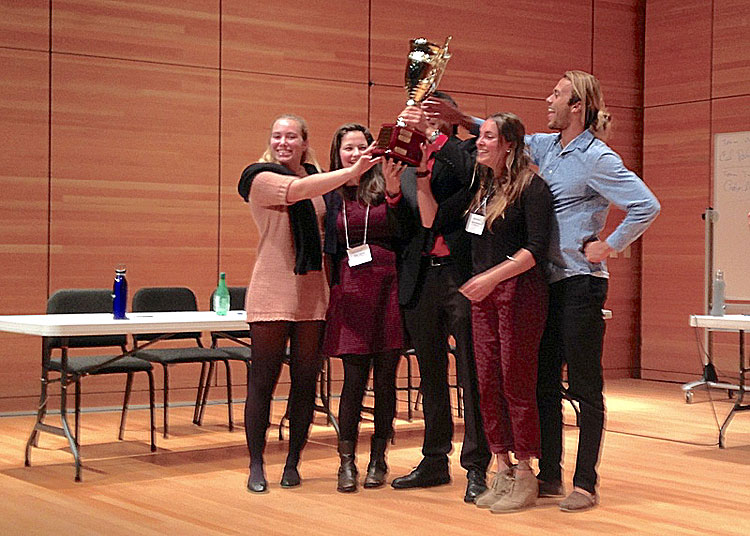Advances to National Intercollegiate Competition February 26

Cabrillo College won the regional competition held in December 2016. Sponsored by the Association for Practical and Professional Ethics, the regional competition included competitors from colleges and four-year universities spanning California, Utah and Arizona.
Cabrillo’s win marked the first time that a community college had ever won an intercollegiate regional competition in the event’s history, and that win secured its spot among the top 36 regional teams that will then go on to compete in the National Intercollegiate Ethics Bowl, which will be held in Dallas on February 26th.
“What makes their win even more remarkable is that these are first- and second-year college students who competed against teams from other four-year colleges and universities composed principally of juniors and seniors,” said Claudia Close, Philosophy Department Instructor and Department Chair. “Throughout the competition, the Cabrillo students were poised and professional, and demonstrated exemplary teamwork and good sportsmanship.”
The Association for Practical and Professional Ethics organizes 11 Regional competitions throughout the United States and Canada. Student teams research, analyze and construct arguments, defending their assessment of the significant moral issues involved in current social, legislative, medical, business, and general interest events.
Students must demonstrate that they have considered the facts of the case, can comprehend and articulate the underlying relevant ethical principles, defend their claims about how the case should be resolved, and answer challenges to their arguments put forward by the opposing side.
In the regional competition, the winning Cabrillo team competed through three initial rounds and a semi-final round before they advanced to the finals. In each round, two cases were considered. Students did not know which of the 12 cases that they had prepared would be the focus, nor did they know what the question would be. They presented their argument, responded to the opposing team’s objections and then responded to the judges’ questions.